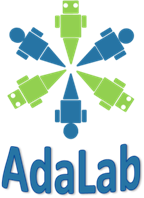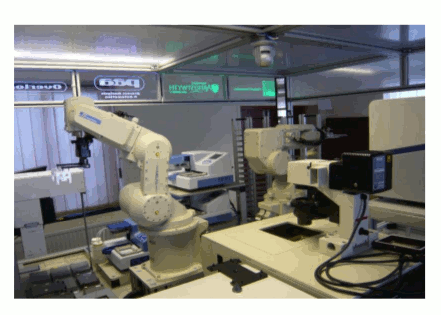






AdaLab, a project funded by the chist-era 4th call for research proposals, integrates the scientific method with 21st century automation technology, with the goal of making scientific discovery cheaper, faster and better. The project will run for three years from the 1st of April, 2015.
A Robot Scientist is a physically implemented laboratory automation system that exploits techniques from the field of artificial intelligence to execute cycles of scientific experimentation. Our vision is that within 10 years many scientific discoveries will be made by teams of human and robot scientists, and that such collaborations between human and robot scientists will produce scientific knowledge more efficiently than either could alone.
In this way the productivity of science will be increased, leading to societal benefits: better food security, better medicines, etc. The Physics Nobel Laureate Frank Wilczek has predicted that the best scientist in one hundred years time will be a machine. AdaLab aims to take that prediction several steps closer.
We will develop the AdaLab (an Adaptive Automated Scientific Laboratory) framework for semi-automated and automated knowledge discovery by teams of human and robot scientists. This framework will integrate and advance a number of ICT methodologies: knowledge representation, ontology engineering, semantic technologies, machine learning, bioinformatics, and automated experimentation (robot scientists). We will evaluate the AdaLab framework on an important real-world application in cell biology with biomedical relevance to cancer and ageing.
This major event will cover the topic of automation in Science. Click to request further details.